TABLE OF CONTENTS
Some cannabis users will swear on their bongs that all you have to do is drink a gallon of water and eat bread before you are off to pass your drug test. Others say that nothing works except 30+ day abstinence from using cannabis in any form.
It is our recommendation that if you want to pass your next drug test, PassYourTest.com product aids are a great way to go. In this article, we tell you exactly how to pass a drug test with Nutra Cleanse.
*some of the links below may result in a commission for us if clicked on and a purchase is made
How Do Nutra Cleanse Detox Kits Work?
The natural herbs, fibers, and vitamins that are included in the formulation of the detoxification solution known as Nutra Cleanse are key components in the product's ability to flush harmful substances out of the body. The product is provided in the form of a drink, which must be consumed prior to the drug test in order for it to be effective.
The toxin-removing effects of the beverage are achieved by increasing the volume of urine produced. Nutra Cleanse is a product that has gained a lot of popularity among those who have recently used drugs but still need to pass a drug test.
Each permanent cleansing program comes with two free home test kits of your choice that you select when ordering. Rest assured you are cleansed after the program.
Following, we will tell you how to use each one of their cleansing products. And every order from PassYourTest.com comes with the following:
- Easy to understand instructions
- A free detoxification meal/diet plan to boost your efforts
- You get great customer support
- Your order is shipped via UPS with tracking
Pass Your Test One Day Detox Cleansing Kits
The extreme whole body detox program is a product that is supposed to assist folks in quickly cleansing their bodies of the effects of drug use in just one day. The program assists individuals in detoxifying their bodies by guiding them through a precise diet plan, exercise routine, and supplement regimen.
Those who have a limited amount of time to prepare for a drug test and still want to have the best chance of passing it can consider the extreme complete body detox program, or Total Body Cleanse Shop.
If you want to cleanse your body in one day or a few hours prior to your drug test, The Nutra Cleanse Fast Acting Clean Shots and Clean Caps are both excellent short-term solutions from Pass Your Test that work within 90 minutes. Once you use either one of these products by following the guidelines, these liquid concentrates work to mask the metabolites.
The highly praised Fast-Acting Clean Shot Kit comes with a 2.5 oz drink and four capsules for $59.95. Another option is the Fail Safe Kit that includes 12 Clean Caps capsules plus the Clean Shot Kit for $89.95. The Fail Safe Kit is your sure way to avoid taking any chances at all in failing your drug test.
BUY ONE DAY CLEANSING KITS HERE
Pass Your Test Same Day Cleanse Products
Pass Your Test same day cleanse products are a must have for anyone needing to pass a THC drug test quick.
Pass Your Test Permanent Detoxification Program
If you have some time to spare before your drug test, The Nutra Cleanse Permanent Cleanse detox program from Pass Your Test is definitely the recommended option.
For this several-day cleansing process, you will have to incorporate a pre-detox diet in addition to taking the daily capsules and supplement – all of which is explained in the given instructions.
The good news is this permanent detox comes in a 5 or 10-day option, so no matter how much time you’ve got before your drug screening, there’s likely a feasible option for you.
The permanent cleanses use a pre-cleansing formula and daily detoxifying supplements to metabolize and remove all unwanted toxins from your body.
If you’re a heavy cannabis user and know you have a lot of toxins in your system that need to be metabolized before passing a drug screening, these are the way to go!
Just for greater ease of mind, every Nutra Cleanse Permanent Cleanse program comes with 2 free home test kits so you can ensure that you’re clean before your actual drug screening.
BUY NUTRA CLEANSE PERMANENT DETOX KITS HERE
Nutra Cleanse 5 Day Detox (Pass Your Test)
Those who have a high amount of pollutants in their bodies are the target audience for the detoxification treatment that lasts for 5 days. The 5 day extreme detoxification program assists individuals in detoxifying their bodies by guiding them through a precise diet plan, and supplement regimen. Before participating in the drug test, it is necessary to adhere to the program for a period of five days. Those who have taken drugs regularly or heavily may benefit from participating in a detoxification program that lasts for five days.
Nutra Cleanse 10 Day Detox
The Pass Your Test detox program that lasts for 10 days is quite similar to the detox program that lasts for only 5 days, but it is created for people who have a higher amount of toxins in their bodies. The 10 day ultra detox program assists individuals in detoxifying their bodies by guiding them through a precise diet plan, exercise routine, and supplement regimen.
Before participating in the drug test, it is necessary to adhere to the program for a period of 10 days. Those who have a high level of toxins in their bodies may benefit from participating in a cannabis detoxification program that lasts for ten days.
Nutra Cleanse Clean Shot
One of the products that can assist persons in passing a drug test is called the Nutra Cleanse Clean Shot, and it is sold by the website Passyourtest.com. The product's formulation includes all-natural components, such as vitamins, minerals, and herbs, which cooperate to rid the body of harmful toxins and purify its internal systems.
The urinary system is the primary focus of the Pass Your Test Clean Shot, which aims to assist with the elimination of any potential medication poisons that may be lodged within the body. The cleansing of the urine system, which is the major way that drug toxins are eliminated from the body, is the primary focus of the injection, which has been created to provide a mild but efficient cleansing of the urinary system.
One of the most important advantages of the Nutra Cleanse Clean Shot is that it is simple to employ and does not call for any kind of laborious or involved preparation. It is not necessary to adhere to any particular diet or exercise plan in addition to getting the shot, which can be administered with water or other beverages.
Individuals merely need to administer the shot to themselves prior to their scheduled drug test in order to use PassYourTest Clean Shot. The effectiveness of the THC clean shot is demonstrated by the fact that it eliminates any drug toxins that may be existing in the urinary system, hence lowering the probability of producing a positive result on a drug test.
Those who have recently ingested drugs but still need to pass a drug test may find success with NutraCleanse Clean Shot as an effective alternative. The item can be utilized by people of any age, and its application is not restricted to either gender or sexual orientation.
When compared to other detox treatments, the fact that Nutra Cleanse Clean Shot is manufactured from natural ingredients gives it a significant edge. This ensures that it is both risk-free and devoid of any potentially hazardous side effects. In addition to this, the substance is designed to have a rapid onset of action, and after ingestion, it can begin to exert its effects in as little as one hour.
To summarize, the Nutra Cleanse Clean Shot is a tried-and-true method that has been proven to be successful for persons who need to pass a drug test. The product is user-friendly, risk-free, and constructed solely from natural elements.
Individuals are able to have peace of mind knowing that they have taken the required efforts to ensure that they can pass a drug test when they use Nutra Cleanse Clean Shot. This allows them to feel confident in their ability to do so.
BUY PASS YOUR TEST CLEAN SHOT
Nutra Cleanse Clean Caps For THC
Nutra Cleanse Clean Caps are a product that can be purchased from Passyourtest.com. These capsules have been developed to assist persons in passing a drug test. The product's formulation includes all-natural components, such as vitamins, minerals, and herbs, which cooperate to rid the body of harmful toxins and purify its internal systems.
Clean Caps are formulated to precisely target the urinary system and assist with the removal of any potential medication poisons that may be present in the body. The pills have been designed to provide a cleansing of the urinary system that is not only gentle but also effective. The urine system is the principal route by which medication poisons are eliminated from the body.
One of the most significant advantages offered by Nutra Cleanse Clean Caps is the fact that they are simple to employ and do not call for any kind of laborious or involved preparation. It is not necessary to adhere to any particular diet or workout plan in order to take the capsules, and they can be swallowed with water or other liquids.
They only need to consume the required quantity of NutraCleanse Clean Caps prior to their drug test in order to use this product effectively. The capsules are effective because they flush away any drug toxins that may be present in the urinary system. As a result, the probability of producing a positive result on a drug test is decreased.
Nutra Cleanse Clean Caps are an efficient solution for those who have recently ingested drugs but still need to pass a drug test. These people have a higher risk of failing a drug test. The item can be utilized by people of any age, and its application is not restricted to either gender or sexual orientation.
Nutra Cleanse Clean Caps have an advantage over other detox products due to the fact that they are created from natural ingredients. This ensures that they are risk-free and don't have any negative side effects. In addition to this, the substance is designed to have a rapid onset of action, and after ingestion, it can begin to exert its effects in as little as one hour.
In a nutshell, the Nutra Cleanse Clean Caps are a tried-and-true method that has proven to be successful for people who need to pass a drug test. The product is user-friendly, risk-free, and constructed solely from natural elements. Individuals are able to have piece of mind knowing that they have taken the required efforts to ensure that they can pass a drug test when they use Nutra Cleanse Clean Caps since these capsules include a proprietary blend of ingredients.
BUY NUTRA CLEANSE CLEAN CAP
Nutra Cleanse Hair Follicles Detox Kits
A product called the hair follicle kit is intended to assist persons in passing a drug test that is conducted on their hair. The kit comes with a shampoo and conditioner that are specially formulated to remove any traces of medications from the hair. It is necessary to use the kit in advance of the drug test in order to guarantee that the hair is clean of any traces of drugs.
Those who are compelled to undergo a hair drug test have an option in the form of the hair follicle kit that is an efficient and reliable alternative.
Nutra Cleanse Detox Shampoo Treatment
If you know you have a hair test coming up, this Nutra Cleanse cleansing shampoo treatment can will help to remove the toxins from your hair before a drug test. This can be helped to ensure that the hair sample provided doesn't test positive for drugs. All you have to do is wash your hair with this treatment that takes about an hour to work and lasts for 24 hours after use. Pass a hair drug test with Nutra Cleanse shampoo treatment.
A detox shampoo is a product that can assist folks in passing a hair drug test that they may be required to do. The shampoo has been developed specifically to remove any traces of narcotics from the hair. It is necessary to use the shampoo prior to the drug test in order to ensure that the hair is clean of any traces of drugs. Those who need to pass a drug test on their hair will find that detox shampoo is an excellent solution to their problem.
BUY PASS YOUR TEST CLEANSING SHAMPOO HERE
Intense Nutra Cleanse Full Body Detox Solutions
The extreme whole body detox program is a product that is supposed to assist folks in quickly cleansing their bodies of the effects of drug use in just one day. The program assists individuals in detoxifying their bodies by guiding them through a precise diet plan, exercise routine, and supplement regimen.
Those who have a limited amount of time to prepare for a drug test and still want to have the best chance of passing it can consider the extreme complete body detox program, or Total Body Cleanse Shop.
Nutra Cleanse THC Test Kits
THC kits are products that have been developed to assist individuals in determining whether or not they have THC present in their bodies. These nutracleanse kits are offered in a variety of formats, including those that test urine, saliva, and hair for the presence of the disease. These detox kits can determine whether or not a person has consumed THC in the recent past by testing their urine for the presence of THC.
Have you ever wondered how you can flush THC before a drug test and got stuck in the rut?
In case you have, this is a guide intended for you.
If you have consumed some high THC strains, you know that it can give you a high that will literally knock your socks off. Now imagine that you have to take a drug test right after an evening of indulgence. The thought of it might promptly sober you, which unfortunately will not translate to the test being negative.
There are many reasons why you may be taking a drug test, but more often than not it is for employment purposes. While there are times adequate notice is given before a test is administered, most times, it’s an impromptu kind of thing.
What can truly help? How do you get that negative result? Join us as we outline the steps you need to take to flush out the THC in your body before a drug test.
How To Clean Out Your System In 24 Hours
What will be tested for?
Workplace drug tests typically use urinalysis (testing pee) to check for metabolites. Metabolites are “the byproducts of processed substances in your body.” The substance being tested for in this case is THC-OOH, the metabolite of THC.
After consuming marijuana, you accumulate THC (tetrahydrocannabinol) in your body and these levels become immediately detectable. THC is the psychoactive component of your weed that is responsible for making you high. As the THC clears from your bloodstream, the metabolites left behind are what are detected by the drug test.
Both THC-OOH and THC are eventually stored in the fat cells of the body. The length of time differs from person to person based in a number of different factors.
Before you embark on getting clean for a test, consider the following factors:
- The amount of THC you have consumed and therefore the quantity of metabolites that might be present in your system.
- The type of test you will be required to take.
- The testing levels that will be used at your drug screening
How Can You Tell How Much THC You Might Have In Your Body?
Several factors come into play when you are determining how much THC and THC and THC-OOH you have in your body, post consumption. These factors are:
- Frequency of consumption: How often you consume THC determines how much of it you have in your system. Are you a daily smoker, weekly, very occasional? Do you take two joints in one sitting 3 times a day? Why is it important, you may ask? Because THC gets stored in our bodies, mostly in fatty tissues, having an excess constantly ensures that a lot more is stored, therefore at any one given point, if you consume a lot, you can expect to have a significant amount of THC and THC-COOH accrued in your body.
- Total body fat: As we have discussed, THC-COOH and THC are stored in fat cells. What this means is that the more fat cells you have, the easier it is for YHC and its metabolites to get stored.
- Metabolism & overall health: Naturally, the state of your health and metabolism play a big part in how fast you can break down and get rid of THC and its metabolites from your system. It is important to note that the process of exercise breaks down fat cells and pushes any THC stored there back into your system, which might then be detected by a drug test. It is important therefore not to work out when a test is due.
- What you’re consuming: This should go without saying. The quality and type of your stash will have an effect on how high you get and how fast you can flush the THC from your system. If for example you consumed concentrates or edibles, these will stay longer in your body than a roll, and the difference will show in eventual testing.
How Long Will THC Stay In The Body?
How long will THC stay in your body is a frequently asked question. Under normal circumstances, THC will stay in an infrequent user’s body for a period of 1-2 days post consumption. However, if you happen to consume every day, you can expect to have detectable levels long after you discontinue.
The half of THC metabolites is generally 7 days, what this means is that every 7 days the THC amount in your body will reduce by 50%. This will happen every 7 days until the THC is eliminated.
It will therefore take most people 3-4 weeks to totally clear the THC metabolites from their system, of course taking into consideration factors like weight and amounts and frequency of consumption.
What Are The Different Kinds Of Drug Tests?
With the growth of the population taking cannabis for recreational purposes, employers and agencies have become very shrewd in finding ways to detect even the littlest amounts of THC in their potential and current employees.
Some of the tests they run are:
Some of these tests are:
- Urinalysis (UA): This tops as the most common drug test taken for the detection of marijuana. It is used by most originations because of its affordability and impressive accuracy. A urinalysis test will detect the metabolized form of THC, which is THC-OOH rather than the THC itself.
- Blood Test: This test will pick up the THC present in your bloodstream. Unlike urinalysis, blood tests also indicate impairment. This happens to be very good news for infrequent consumers as the THC is metabolized out of the blood stream in a couple of hours. However, for consumers who use more and in higher quantities, THC is still being released back into the blood stream constantly, which would be picked up by the tests long after they stopped using.
- Hair Test: Though not very widespread, this method of testing measured the remnants of THC-OOH found in the follicle of the hair. This method can pick out races months after use was discontinued.
- Saliva Swab Test: This test is usually used to conduct drug tests in unplanned places, such as on a roadside. This is due to the ease in carrying out this test. The saliva swab test detects the presence of the Δ9-THC. THC can remain in your saliva for 24 to 72 hour in the case of infrequent users. And it can remain for up to 30 days in the saliva of frequent users.
Sounds complicated, yes? As difficult as getting around this one might seem, we have a trick in the bag for it as well.
How Do I Pass A Drug Test?
What is the most logical thing to do if you have a drug test coming up?
You guessed it. Stop using immediately.
The longer the duration between when you last consumed and when you have to take your drug test, the higher your chances of coming out clean.
However, if that ship already sailed and you are faced with and impromptu drug test, here are some things you can do:
1. Use detoxification products
Detoxification products assist your body in getting rid of toxins including THC and its metabolites, in a relatively short time. They will flush out your body in between 3-5 days so this is a good option to take.
Ensure to take a home drug test before the actual drug test however, just to be sure.
Best Detox Kits and Home Test Kits
Home Testing Kit (get this before your drug test)
Folli Clean Shampoo for Hair Drug Test
Single Panel THC Home Test Kit
Test-O-Meter THC Home Test Kit
Total Body Cleanse (Great for cleansing THC out of whole body fast)
2. Use a same day cleanser.
If you have been caught out unprepared in the glaring headlights of a test, do not despair. Same day cleansers can come to your rescue. Its action is that it targets the urinary tract, temporarily flushing out metabolites which give you a window in which you can collect a relatively clean sample.
Buy NUTRACLEANSE products and flush it out!
Get the best Same Day Cleanser here.
3. Detox, naturally.
If you have time and are in good health, work that THC out of your system. Employ a nutritious diet, exercise and take plenty of water and in just 4-6 weeks you will be as good as new.
How To Flush Your System In 24 Hours
The fast rule of preparing your urine for a urine drug test on short notice is to dilute it enough for it fall beyond the threshold of 50ng/ml.
Is diluted urine the whole shebang?
Unfortunately not. Modern drug tests kits are also designed to check for how dilute your sample is.
In a nutshell, you need to make your urine dilute enough so that the metabolite levels are negligible yet not too dilute that it is picked s an anomaly.
How do you do that?
Take these steps and you will have the perfect sample in just 24 hours:
- Water: This is the key component in flushing out your system. Take two three liters the day before the test and a further 1-2 liters in the day of the test.
That said; manage your consumption to ensure you stay within safe boundaries as excessive consumption of water could be dangerous.
Take these to mask your excessive water intake:
- Vitamin B: This is to make your pee yellow and mask the diluteness. You could use either Vitamin B-2 or B-12 which you can purchase at your nearest drug store. 50-100 mg should be taken a few hours before your test.
- Creatinine: This is a substance tested to check whether you have submitted a dilute substance. It is a product of muscle metabolism and naturally occurs in the body.
Taking creatinine (again purchased at a store) a few hours before your test will fix this sufficiently.
If you don’t want to go through the whole hustle of measuring your water intake and popping pills, you could just purchase Detox Drinks which already have all the necessary requirements mixed out for you in safe proportions.
Other Tips To Help You Pass That Test:
- Avoid Exercise before a test: As discussed previously, this will just re-introduce the stored THC back into your bloodstream.
- Avoid the beginning and end of your pee stream: These are the most concentrated parts of your pee. Simply pee into the bowl first, stop and collect, then finish off in the bowl.
- Do not give early morning pee, it is also very concentrated.
Synthetic Urine
When all else fails, give a sample that is not yours. You could either carry a synthesized form or carry someone else’s pee.
It goes without saying that the trick here is not to get caught.
Towards this end, ensure you conceal it properly and that you submit it at the right temperature, because yes, that is often checked too.
How Do You Pass A Hair Follicle test?
We promised you a tip on passing the hair follicle test.
It’s very simple really; use hair follicle drug test shampoos designed for this purpose and do not forget to use their home testing kits before your actual test.
If you're in the market for a job, there are some simple tips to passing a cannabis drug test you should know. It's important to ensure you get the THC out of your system before you show up for the testing. For those who use marijuana frequently, passing a cannabis drug test might be a challenge. However, it is possible to pass with flying colors with our tips below.
You first have to learn the steps to detoxing the cannabis from your body in chemical and natural ways. You also need to know the fastest methods in case you get called out of work for a random drug test.
Fat and THC
THC is a chemical compound that is classified as a cannabionid and found in the marijuana plant. THC is fat soluble, meaning it is easily storied in your body's fat cells. THC is generally traced using things like someone's blood, saliva, finger nails, hair and urine. So, make sure you know the type of cannabis drug test that your potential employer will use and how they will trace it.
The THC in the marijuana plant is quickly absorbed in the body through smoking. In fact, when you smoke weed, it reaches a peak in nine minutes or less. If you consume it by eating edibles or other infusion methods, it takes longer to get into your bloodstream.
Why Do Companies Still Test for THC?
The cannabis drug test is administered in a wide range of settings and done for a variety of reasons, even in states where marijuana is legal recreationally. The most common reason is to meet requirements for pre-employment. Some companies also give employees random drug tests.
If you get injured on the job, you can also most likely guarantee you'll receive a drug test for workers' compensation.
Always be prepared and ready. One good thing is that most companies know that you cannot be fully free of the THC chemical or its metabolites in order to pass a cannabis drug test. All you need is to have a potency level that is below the actual threshold in order to pass the test. The threshold is usually 50 NG/ML. Once your test registers below this number, you will enjoy negative test results.
Steps to Take to Pass Your Drug Test
It's obviously more risky if you do a cannabis drug test just a day after you have used marijuana in any way. It's best to give yourself a few days to get flushed.
Forget about gulping down too much water on the day that you will be doing the test. Yes, water is good to hydrate your body. But too much water intake can be dangerous or result in a test too diluted.
The day before doing the cannabis drug test, drink about two liters of water. A few hours before your drug test, drink an additional liter.
Exercising the day before may spike the level of THC in your blood. Take vitamin B12, B2 and B complex because it could improve your chances for a negative drug test. Make sure your drug testing is schedule in the afternoon because you don't want the tester to use the first morning urine.
There are many people that use simply Certos, Gatorade and water to pass a drug test. You can find Certos and Gatorade in any Walmart. Certos is found in the Jello aisle.
You can also purchase synthetic urine from many head shops. You heat it up in the microwave or place it close to your body for an hour before the test to heat to body temp.
You need to make sure that you're going to a testing facility where they don't leave the door open when you use the restroom. You need privacy while you make sure the synthetic urine gets to temp. A temperature gauge on the side of the bottle will help you judge.
The lab worker will quickly look to see if your urine is at the correct temp when you hand it to them so you need to make sure you're accurate. This is the case when using someone else's urine as well. The temperature is the most important factor during the test.
If you're thinking of using synthetic urine for a probation drug screening or something of that nature, don't even try it. Getting caught using products like the Whizzinator will just land you in more trouble.
Pass Your Test Products By Nutra Cleanse
To pass a drug test for THC, cannabis, marijuana, weed, or pot, we recommend using the cleaning products sold at passyourtest.com
Passyourtest Best Products For Passing a Urine or Blood or Saliva Drug Test:
Single Panel THC Home Test Kit
Test-O-Meter THC Home Test Kit
Don't get complacent when it comes time to do a cannabis drug test. Clean or flush your body using different methods. Make sure to have a healthy diet too. If you want to learn more about taking and passing a cannabis drug test, visit the Cannabis Training University, the best online marijuana university.
Get certified and trained online at the premier cannabis training college. Enroll today at the cannabis training institute, Cannabis Training University.
Pass a Drug Test With Nutra Cleanse Detox Products
If you need to pass a weed drug test use the products from NutraCleanse.
You may often hear people wondering does CBD show up on a drug test or not? Drug testing normally occurs prior to an offer of employment, after a vehicle crash, or in sports organizations to detect an array of drugs.
Many medical and recreational consumers take cannabidiol-based (CBD) products to relieve pain, ease anxiety, or for a number of therapeutic purposes. While CBD comes from cannabis plants, a federally illegal substance, many CBD products won’t show up on a drug test.
CBD is considered a modern-day miracle compound for its ability to relieve symptoms associated with chronic pain, inflammation, anxiety, depression, seizures, and other medical conditions. Despite the preliminary findings of CBD’s therapeutic effectiveness, federal agencies are hesitant to regulate these products. Here’s a guide on how CBD affects drug tests and how you can avoid triggering a positive test.
Will CBD Show Up on a Drug Test?
Most drug screening methods only test for delta-9-tetrahydrocannabinol (THC) or one of its metabolites THC-COOH. Drug screeners could opt to detect CBD, but this is not very common, especially in states with legal cannabis laws.
Not all CBD products are the same, however. Some contain THC, while others don’t. Knowing the difference between these varying strains and product types can prevent a positive test.
“
There are over 300,000 jobs in the cannabis industry. CTU trained me for one of them!

Makes $24.50 @ THC +
Pure CBD products that don’t contain any THC are the safest bet for CBD consumers who are worried about passing a drug test. CBD products sometimes contain trace amounts of THC, which can add up in frequent or heavy users. Furthermore, the small amount of THC in a CBD product can bind to fat cells for an extended period of time.
THC can remain in the system for many days or even weeks for chronic users. A lack of FDA-regulation makes finding THC-free CBD products even more difficult.
Cut-Off Values of CBD
A drug testing method’s detection times depend on multiple factors, including drug interactions, frequency of use, body mass, and more. Currently, most drug testing methods only look for THC or THC-COOH.
Urine tests are the most common, due to their affordability and detection period. These tests typically have a THC-COOH cut-off value of 50 nanograms per milliliter (ng/mL). Urine tests can detect THC for approximately three to 15 days after use. Chronic users can trigger detection even a month after use.
Other tests such as saliva, blood, and hair drug tests are not as commonly used as urine tests. A blood test might be used to detect current drug use in the case of a suspected state of driving under the influence. Ultimately, these cut-off values don’t detect CBD. As long as customers are aware of their THC intake, they shouldn’t worry about failing a drug test.
Types of CBD
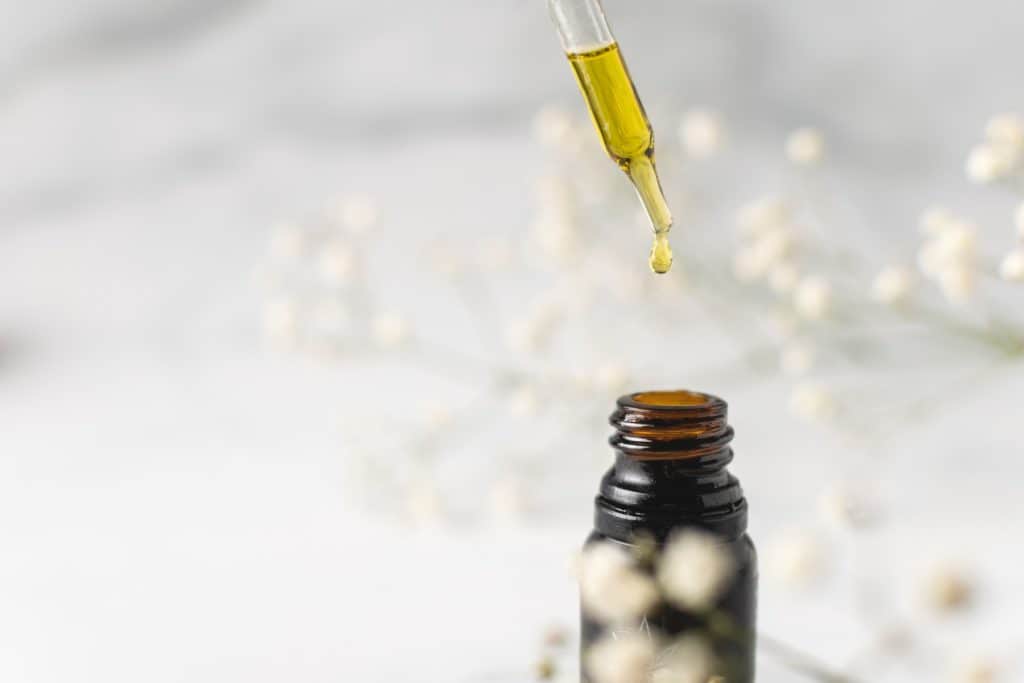
CBD can come from cannabis and hemp plants. Both plants are in the same plant family. The difference between hemp and cannabis is the THC level. Marijuana plants can contain varying concentrations of THC that can be as high as 30 percent.
Hemp plants, however, must legally contain less than 0.3 percent THC. Growing conditions also affect the cannabinoid profile of a plant. Hemp products often contain considerably less THC than the legal amount.
Full-spectrum, marijuana-derived, CBD products preserve the strain’s original profile of compounds including terpenes, flavonoids, and other cannabinoids. They could include varying levels of THC. Full-spectrum, hemp-derived CBD, however, must legally contain less than 0.3 percent THC. Full-spectrum products can come as concentrates, edibles, or topicals.
Broad-spectrum CBD products are similar to full-spectrum products except for one key difference. Broad-spectrum CBD products don’t contain any THC at all. Although these products feature the other terpenes, flavonoids, and cannabinoids found in hemp, all the THC has been stripped away.
CBD isolates are the purest form of CBD available. CBD isolates are typically hemp-derived, come in crystalline powder form, and contain no THC.
Avoiding THC Consumption
Some individuals insist that their CBD consumption led to a positive drug test for THC. In a critically under-regulated CBD market, customers must worry about cross-contamination, product mislabeling, and other bad business practices by CBD brands.
Manufacturers that deal with THC and CBD separately or together can increase the likelihood of cross-contamination. Customers are left in the dark, especially if no lab testing confirms the cannabinoid content in the product.
Product mislabeling is an obstacle that all CBD consumers must face. A 2017 study in the Netherlands titled “Labeling Accuracy of Cannabidiol Extracts Sold Online” analyzed 84 CBD products from 31 companies. The study found that 18 of the products tested contained THC, despite labeling indicating otherwise. Until manufacturing and testing standards are put in place for CBD products, consumers must do their due diligence when purchasing a CBD product.
Buying THC-Free Products
Before buying any CBD product, you must first ensure you are buying the correct type. For example, pure and lab-tested CBD isolates are less likely to contain THC than broad-spectrum lab-tested CBD products.
Look through a product’s description and ingredient list to ensure you aren’t skipping over any THC content. It helps if the manufacturer publishes a certificate of analysis (COA) for the CBD used in the product. A COA provides lab-verified test results that include information about the presence (or absence) of THC.
In addition, note whether the CBD product is derived from marijuana or hemp. Products derived from hemp are less likely to contain THC. Finally, check through reviews and compare brands to find a product that works for you. Avoid products that other users have had problems with.
CBD is a relatively harmless compound that won’t show up on common drug screening tests. As long as consumers carefully vet the company they purchase CBD products from, they can lower their risk of triggering a surprise positive test result. Positive drug tests can have an enormous consequence on work or medical care. If you’re really worried about passing a test, abstinence is the best way to put your mind at ease.
Learn more about CBD online at the top cannabis college. Dive deeper into CBD and ot
BUY NUTRA CLEANSE AND PASSYOURTEST PRODUCTS
GET ALL YOUR NUTRA CLEANSE PRODUCTS HERE, SAVE MONEY, AND PASS YOUR DRUG TEST TODAY!
*This article has affiliate links in it. If you click through and make a purchase we may get a small commission from it. Thank you for your support.
Tips For Getting The Best Results from Nutra Cleanse Products
Prior to your official cannabis drug test, be sure follow these guidelines along with following the instructions that come along with your chosen test kit in order to obtain the best results:
- Avoid toxins for as long as possible before your deadline. The longer you avoid toxins before your cleanse, the better the results will be.
- Incorporate a healthy diet into your lifestyle. Avoid high-fat, greasy foods, processed food and fast food that slow the detoxification process.
- Up your intake of protein and healthy greens as listed in the diet menu included with every Pass Your Test product.
- Avoid any alcohol, over-the-counter drugs, and non-crucial medications.
- Try and consume at least 100oz of liquids each day while following the cleansing program.
Pass a Weed Drug Test with Nutra Cleanse products today!
NUTRA CLEANSE
*some of the links above may result in a commission for us if clicked on and a purchase is made

Fred Hernandez
Fred Hernandez is a highly accomplished and versatile writer, boasting an extensive background in the cannabis industry. With an in-depth understanding of various sectors including cultivators, processors, retailers, and brands, Fred's expertise spans across the entire cannabis landscape. As a prominent contributor to CTU, he consistently delivers insightful articles exploring the latest developments, news, and regulations shaping the cannabis industry. Whether it's delving into the intricacies of cannabis products, cannabis strain reviews, or providing comprehensive analyses of cannabis laws, or sharing expert insights on cannabis cultivation techniques, Fred's wealth of knowledge positions him as an invaluable writer and educator for all cannabis-related subjects.


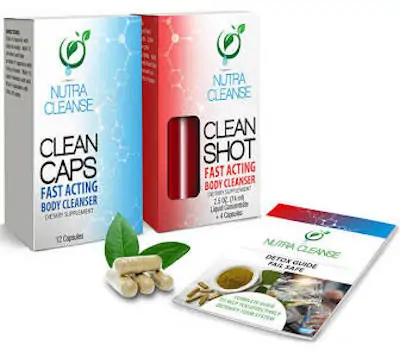

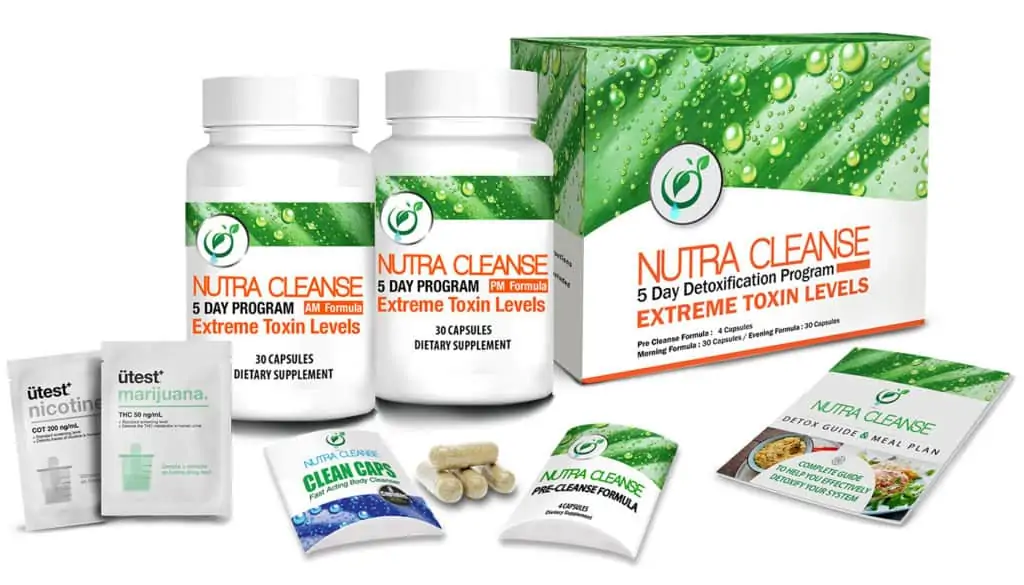



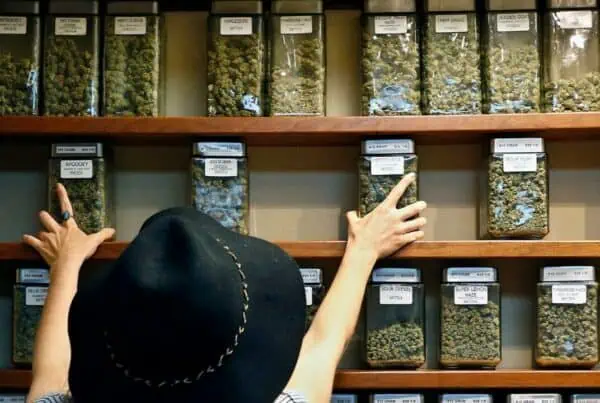
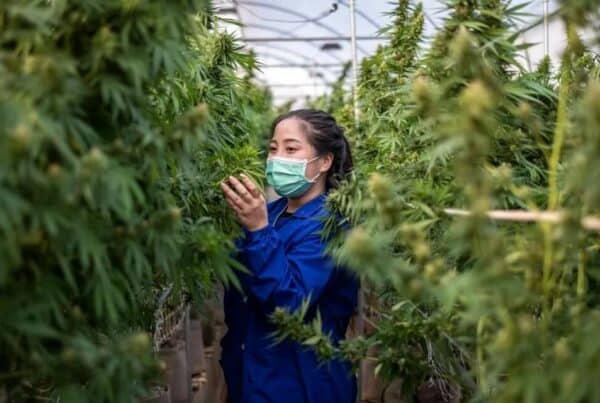
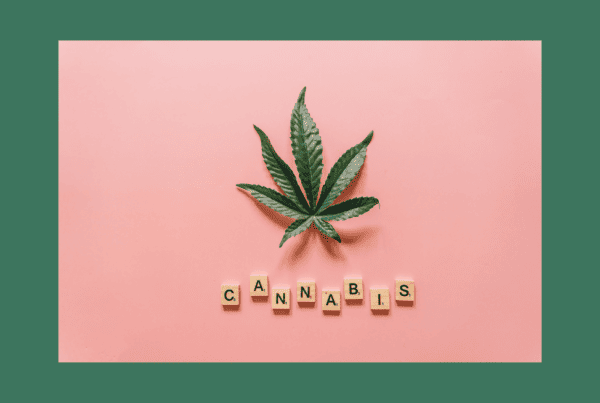
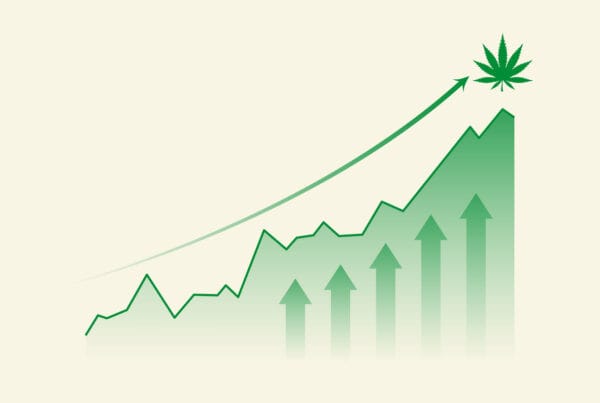
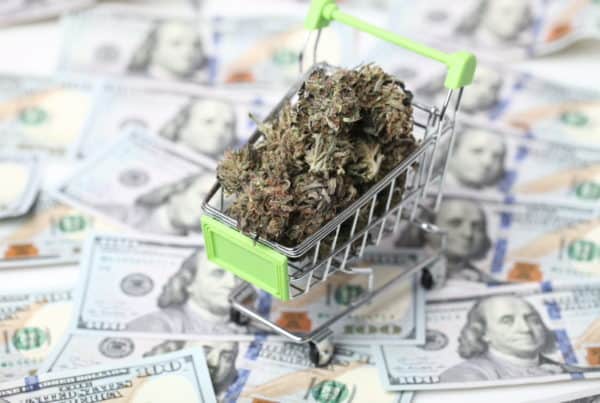

 Jeff was involved in an accident where he endured a traumatic brain injury. He had a week-long stay in ICU where brain surgeons
Jeff was involved in an accident where he endured a traumatic brain injury. He had a week-long stay in ICU where brain surgeons  100% risk free money back guarantee within 48 hours after purchase if student has not completed any of the courses or exams.
100% risk free money back guarantee within 48 hours after purchase if student has not completed any of the courses or exams.